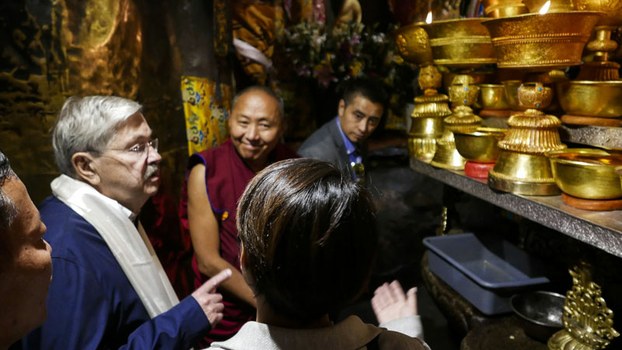Tibetet Segítő Társaság Sambhala Tibet Központ
Tibet Support Association Sambhala Tibet Center
székhely / telephely H-Budapest I. Attila út 123..
(00-36) 70 431 9343 (00-36)70 944 0260 (06-1)782 7721
sambhala@tibet.hu www.tibet.hu tibetpress.info
Facebook/Sambhala Tibet Központ Facebook/Tibett Segítő Társaság
MagnetBank/ 16200010-00110240
IBAN/HU94 16200010 00110240 00000000 SWIFT/HBWEHUHB
(1%) adószám/ 18061347-1-41
nyitva tartás/hétköznap 12.00-20.00 hétvégén előadás függő
» Retro» Tibeti művészet» Interjú» Levelek» Tibet Press» Tibet Press English» Dharma Press» Human Rights» Világ» Kína» Magyar» Ujgur» Belső-Mongólia » KőrösiCsoma» Élettér» Határozatok» Nyilatkozatok» tibeti művészet» lapszemle.hu» thetibetpost.com» eastinfo.hu» rangzen.net» ChoegyalTenzin» tibet.net» phayul.com» DalaiLama.com» vilaghelyzete.blogspot.com» Videók» Linkek» TibetiHírek» Szerkesztőség
Az amerikai nagykövet ritka tibeti látogatása alkalmával hangot adott a vallásszabadsággal kapcsolatos aggodalmainak
2019. május 25./RFA/TibetPress
Jelenleg csak angolul olvasható. Magyarul később.
eredeti cikk
U.S. Ambassador to China Terry Branstad urged China to open “substantive dialogue” with exiled Tibetan Buddhist leader the Dalai Lama and give the Himalayan region’s Buddhists freedom to practice their religion in a rare week-long visit to Tibet, the State Department said on Saturday.
During his May 19-25 visit, the first such trip by a U.S. envoy to China since 2015, Branstad met religious leaders and toured historic sites in Tibet Autonomous Region (TAR) and Qinghai Province, a historic region of Tibet known to Tibetans as Amdo, the department said in a statement.
“The Ambassador raised our long-standing concerns about lack of consistent access to the Tibetan Autonomous Region,” it said.
“He also expressed concerns regarding the Chinese government’s interference in Tibetan Buddhists’ freedom to organize and practice their religion,” added the statement.
“He encouraged the Chinese government to engage in substantive dialogue with the Dalai Lama or his representatives, without preconditions, to seek a settlement that resolves differences,” it said.
Branstad visited sites of importance to Tibetans, including the Potala Palace, Jokhang Temple, Norbulingka, and Sera Monastery. He also met with senior Tibetan religious and cultural leaders, said the statement.
The Dalai Lama fled to India amid an abortive uprising against Chinese rule in 1959, nine years after Chinese troops marched into Tibet.
Beijing considers the 83-year-old monk a separatist and has refused to meet with his representatives for more than a decade.
Branstad’s visit was the first by a U.S. official to Tibet since the approval by U.S. lawmakers in December of the Reciprocal Access to Tibet Act, which requires Washington by the end of this year to deny visas to Chinese officials in charge of implementing policies that restrict access for foreigners to Tibet.
A report by the State Department in March said that China “systematically” impedes access to Tibet for U.S. diplomats and officials, journalists, and tourists, and when visits to the region are granted, they are “highly restricted. China dismissed the report as biased.
Last week the Dharamsala, India-based Tibetan Centre for Human Rights and Democracy (TCHRD) issued a report that said the human rights situation in Tibet took a sharp downward turn last year with tightened restrictions on travel by Tibetans and a new campaign against “organized crime” targeting Tibetan civil society and cultural practices.
Calling 2018 a “pivotal year” for human rights in the TAR and other Tibetan areas of China, TCHRD said that new policies and regulations have led to “an increased restriction on human rights and lives of the Tibetan people.”
A nationwide campaign against “crime” and “black and evil forces” introduced at the beginning of the year resulted in the detention, arrest, and torture of human rights and environmental activists and of ordinary Tibetans promoting the use of the Tibetan language, the rights group said in its report.
In December, two young Tibetans set themselves ablaze in Ngaba (in Chinese, Aba) county in Sichuan province in opposition to China’s rule, as well as political and religious repression in the TAR and other Tibetan areas.
They raised to 157 the number of self-immolations by Tibetans since the wave of fiery protests against nearly 70 years of Chinese rule of their homeland began in 2009. Many of the protesters also called for the return to Tibet of the Dalai Lama.
China maintains that it peacefully liberated Tibet from feudal rule, and that Tibetans enjoy the economic development it has brought to the region.
Reported by RFA’s Tibetan Service. Written in English by Paul Eckert.
